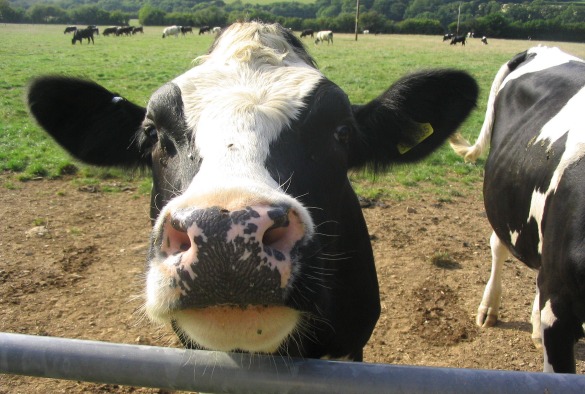
Three projects led by the University of Liverpool have received more than £1.4m to lead research in the fight against livestock disease – which provide significant challenges to the farming and agricultural sector.
Academics from the University’s Institute of Infection, Veterinary and Ecological Sciences have secured the government funding with projects including:
- Genetic and management solutions for lameness-associated endemic diseases in dairy cattle. Led by Professor George Oikonomou the funding will allow investigators to significantly advance their expertise in this area and will be supported by a number of key industry partners. Ambitions for the project are to achieve widespread and rapid impact via an extensive knowledge exchange programme underpinned by implementation science research.
- Delivery of rapid diagnostic tests for sustainable control of parasitic diseases in sheep and cattle. Led by Professor Diana Williams, the project will allow farmers to identify infected sheep and cattle, and target treatment directly at those that most need it. This work is particularly important given the problems associated with resistance to medicines used to control parasites and changing global climates.
- The UK produces more than 13 billion chicken table eggs a year. With the University’s industry partners, this study – led by Dr Kannan Ganapathy – will provide key scientific evidence for sustainable egg production in UK free-range flocks. The work will also explore the interactions between farm practices, flock coinfections and immunity to maintain better poultry health and welfare.
Professor Matthew Baylis, Executive Dean of the Institute of Infection, Veterinary and Ecological Sciences at the University of Liverpool said: “At the Institute of Infection, Veterinary and Ecological Sciences we’re dedicated to leading the way in veterinary science research to benefit people, animals and ecosystems, nationally and globally. This funding allows us to continue our work in these priority areas and create real solutions to real-world problems.”
Funding comes from a wider £9m pot from the Biotechnology and Biological Sciences Research Council (BBSRC) and Department for Environment, Food and Rural Affairs (Defra) who have announced the multi-million-pound investment for phase two of the ground-breaking endemic livestock disease initiative.
The £11.5 million initiative commenced in 2021 and seeks to transform the UK livestock sector by reducing the burden of endemic diseases on animal health, welfare and productivity.
Developed in consultation with academia, industry and policy makers, the endemic livestock disease initiative focuses on fostering collaborative research between academia, industry and end-users. The goal is to deliver innovative on-farm solutions that will effectively mitigate the impact of endemic diseases on the UK livestock sector.
To date, the initiative has successfully facilitated the formation of 45 new industry partnerships, forging strong collaborative networks. Moreover, it has engaged with over 170 end-users including farmers, veterinarians and policymakers to ensure that the research outcomes directly address their practical needs.
Professor Guy Poppy, Interim Executive Chair at BBSRC, said: “Endemic diseases in the UK livestock sector pose significant challenges to animal welfare, productivity and sustainable farming practices.
“By bringing together the collective expertise of academia, industry and end-users, we are confident this initiative will lead to ground-breaking advancements in disease control, fostering a healthier and more productive livestock sector.”